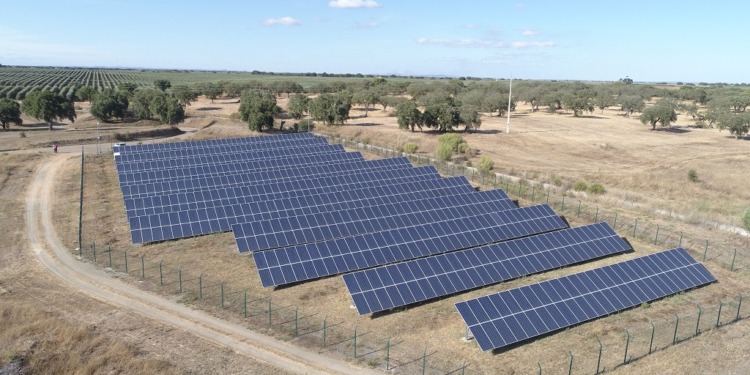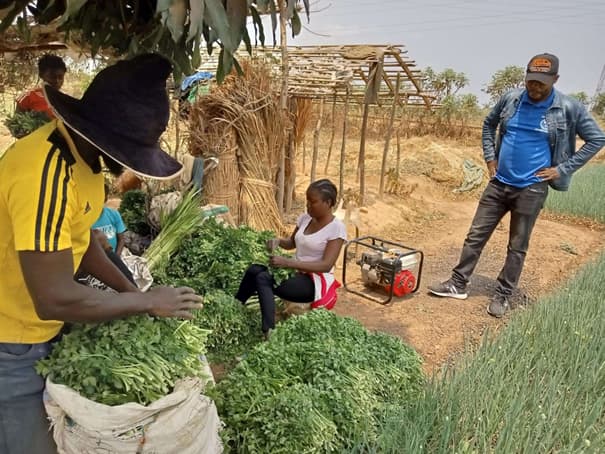Impact investing platform Energise Africa looks at how Microfinance Institutions are benefitting communities in developing economies and how UK investors can help them succeed
Esiankiki Wanjiku* lives in Kajiado County, part of the arid and semi-arid region of Kenya. Wanjiku belongs to the Masai tribe whose pastoral lifestyle is threatened by frequent droughts drying up water sources. When her third child was born, she decided to try farming.
However, she found it was not easy to grow crops without irrigation either. Her village did not have electricity and rising fuel costs made using petrol pumps too expensive. Finally, her husband sold some animals from his herd in order to buy a solar pump because nobody would give an itinerant Masai a loan. She dug a well to store rainwater from the few heavy downpours and then used the solar pump to irrigate a 10-acre plot, where she grows onions four times a year.
After expenses, Wanjiku now makes about 800,000 KSh (about US $5,840) per year.
The problem of financial exclusion
Lack of financial access is holding back large parts of the developing world. As the example above demonstrates, products like solar pumps could help many more people in emerging economies build resilience to the effects of climate change and make progress toward achieving the Sustainable Development Goals (SDGs). However, the initial cost of buying these products is high, and getting a loan is nearly impossible for many people.
The International Finance Corporation (IFC) estimates that two-thirds of adults in sub-Saharan Africa have no access to formal financial institutions. This not only means that they can’t borrow money when they need it but they also have no place to keep their savings safely and easily. The best they can do is to trade one livelihood asset for another as Wanjiku did.
The development of start-up businesses and entrepreneurs is key to building stronger local economies in rural areas in developing countries, but a major sticking point is the lack of access to affordable loans from trustworthy providers, which are needed to get businesses off the ground or to enable them to grow.
RELATED ARTICLES: A New Report Identifies Key Financial And Policy Reforms Needed To End Energy Poverty In Ethiopia | Tapping Into Africa’s Energy Potential | How Partnerships Can Turbo Charge Progress on the SDGs | COP26 – Now The Talking’s Done, Let’s Get To Work! | Reimagining Africa’s Agri-food Systems | Catalytic Fund from African Solidarity Transforms Rural Lives
Microfinance Institutions (MFIs) are helping to solve this problem, along with many other issues caused by a lack of access to reliable and affordable finance. Many Microfinance Institutions do not have branches, instead, they operate through a network of agents meaning they can reach people in rural areas or poor people in urban settlements.
They provide small loans and do not ask for collateral security, making finance much more accessible for many. They also offer the ability for people to repay in weekly installments which is very helpful for people with irregular incomes. Over time, they have also added the ability to accept small deposits. People can pay any surplus income to a safe institution without having to trek to a branch that would be unfamiliar and daunting.
Microfinance Institutions can help sustainable development
Microfinance Institutions emerged in the 1970s in Bangladesh, then one of the world’s poorest countries. Sir Fazle Hasan Abed returned to his newly-independent home country from the UK and set up BRAC, which has now expanded from Bangladesh to 10 other countries.
Mohammed Yunus, an economics professor started the Grameen Bank project by making a loan to a group of 42 women to start small businesses. Bangladesh has now graduated as a Middle-Income Country and numerous studies have confirmed that the MFIs contributed significantly to this economic development. It has helped people start businesses and diversify their income. It has also helped women save and borrow, leading to broader benefits such as increased education levels.
The Microfinance Institutions in Bangladesh have also played a remarkable role in helping more than 4 million households purchase solar systems by offering 3-year loans at 12% per annum (a reasonable interest rate in emerging countries). The households paid for the loans from the savings they made from not needing to buy kerosene any more. Across the developing world, companies selling systems for lighting and irrigation are seeing the benefits of partnering with MFIs to help make their products more accessible, creating social and financial benefits for all.
Digital technology is enabling financial inclusion
Several digital technology trends are coming together to make democratizing finance easier than ever before. Mobile money has helped companies sell solar systems to consumers on a “pay as you go” basis. Biometric scanners help establish identities in rural areas. Sophisticated data analysis helps companies check creditworthiness. Companies in Africa track how customers use mobile money to decide whether they can pay a loan back. For example, a company in India is using behavioral data to approve electric tuk-tuks loans to drivers. A McKinsey Global Institute study surmised that digital finance can be of benefit to both poor people and small businesses and add 3.7 trillion to the GDP of emerging economies in ten years.
Energise Africa has recently launched our second financial inclusion investment opportunity to support Guilgal, an MFI in Congo, which was launched in 2012. The business has grown steadily since then and offers loan and deposit products through an agent network. This credit opportunity means that budding entrepreneurs are able to get the up-front capital to start businesses and farmers can buy vital time and money-saving equipment. By enabling MFIs to expand and reach more customers in more remote areas, investors will be helping the people who benefit directly and working towards several of the SDGs. They’re helping reduce poverty and supporting financial and gender inclusion. In the case of Guilgal, lending to support a range of sustainable small businesses means they’re also supporting climate action In DRC. They successfully raised £250,000 through Energise Africa investors with their first bond offer.
Energise Africa investors have already invested £2.5 million in Altech, which has now established itself as the leading company providing solar systems to homes that do not have access to electricity in Congo. With Guilgal, our investors now have an opportunity to support the growth of a company that enables financial inclusion in places where many people have no access to traditional financial services. And this is perhaps one of the most vital enablers underpinning our achievement of sustainable development goals.
* not her real name. Capital is at risk and returns are not guaranteed.
Editor’s Note: The opinions expressed here by Impakter.com columnists are their own, not those of Impakter.com –In the Featured Photo: Solar Panels. Photo credit: Unsplash.











